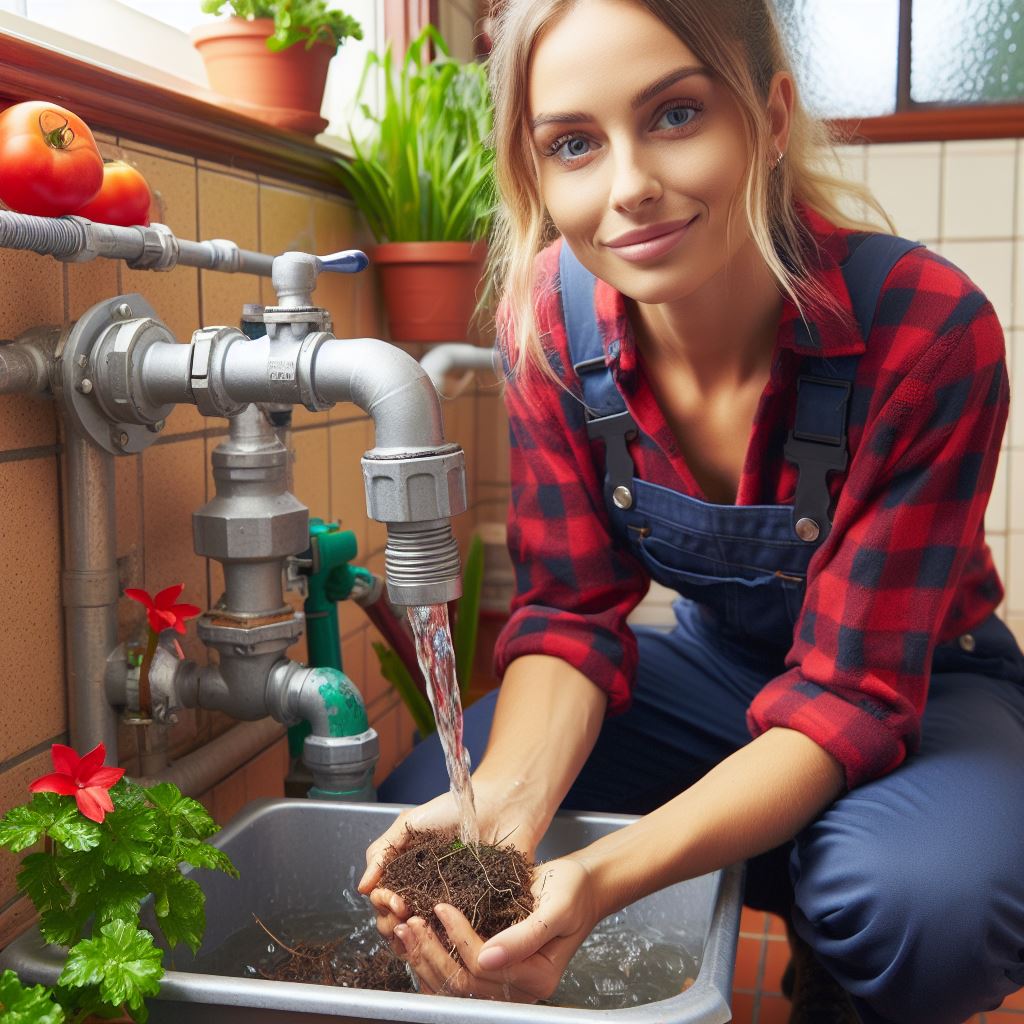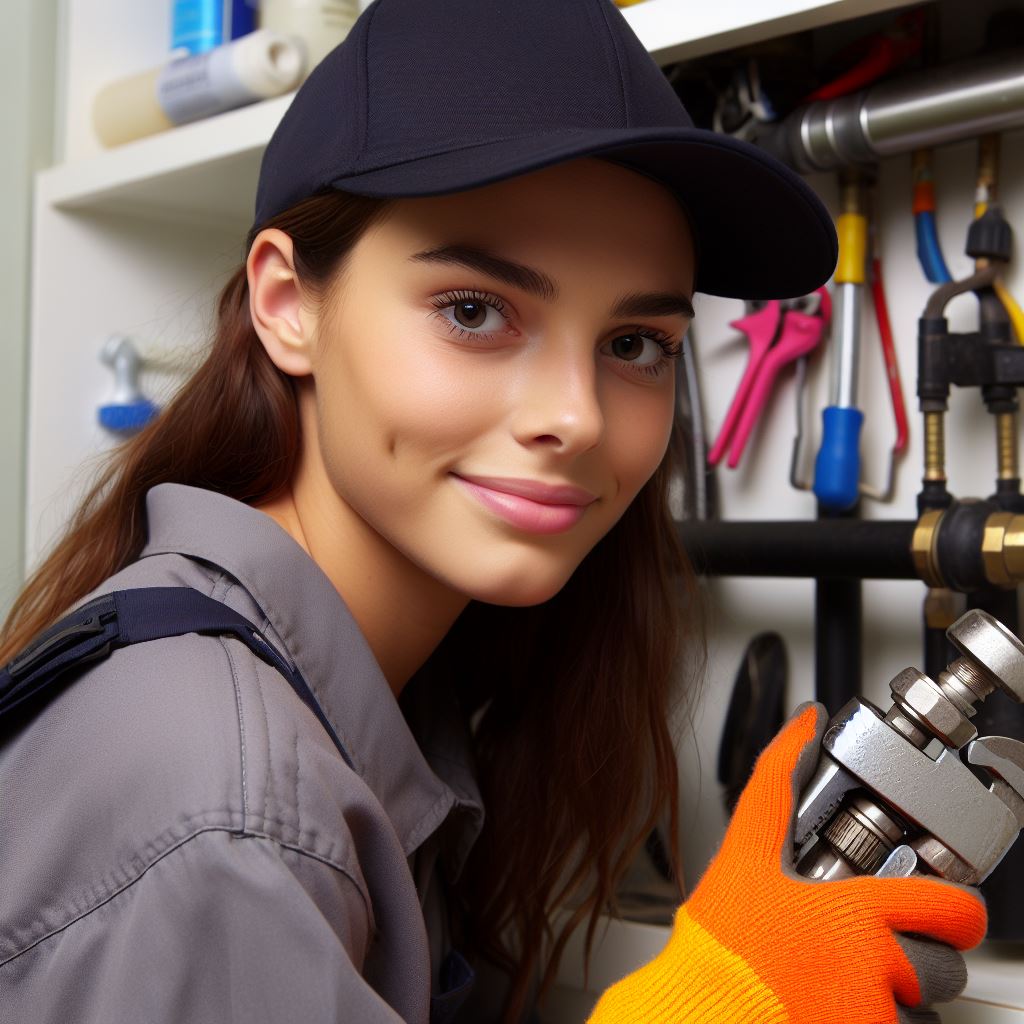Introduction
Plumbing regulations play a crucial role in ensuring the safety and well-being of Australian citizens.
These regulations govern the design, installation, and maintenance of plumbing systems, including water supply, drainage, and gas fittings.
Compliance with these regulations is essential to prevent health hazards and maintain the integrity of buildings.
Purpose of the Blog Post
The purpose of this blog post is to provide an update on the current state of Australian plumbing regulations.
It will highlight any recent changes or developments in the regulations and discuss their implications for plumbers, homeowners, and businesses.
By staying informed about these updates, readers will be able to ensure they are in compliance with the latest requirements and standards.
In the following section, we will dive into the specific updates and changes in Australian plumbing regulations.
We will outline the key areas that have been affected and explain the reasons behind the updates.
This blog post aims to provide a comprehensive overview of the current state of plumbing regulations in Australia and offer practical guidance for those involved in the plumbing industry.
By understanding the importance of plumbing regulations and staying up to date with the latest changes, we can ensure the safety and efficiency of plumbing systems across the country.
Compliance with these regulations not only protects the health of individuals but also contributes to the overall sustainability and quality of our built environment.
Let’s explore the latest updates and their impact on Australian plumbing practices in the upcoming section.
Background on Australian plumbing regulations
Australian plumbing regulations are guidelines and rules set by the government to ensure the safety and quality of plumbing systems in the country.
Compliance with these regulations is mandatory for all plumbers, builders, and property owners to prevent health hazards and protect the environment.
Plumbing regulations in Australia are continually updated to adapt to technological advancements and address emerging challenges in the industry.
Overview of the current regulatory framework for plumbing in Australia
The current regulatory framework for plumbing in Australia is primarily governed by the Plumbing Code of Australia (PCA).
The PCA sets the minimum standards for plumbing installations, water supply, sanitary facilities, and drainage systems across residential, commercial, and industrial buildings.
Each state and territory in Australia has its own plumbing legislation and regulatory bodies that enforce the PCA.
The regulatory framework ensures that plumbing work is carried out by licensed professionals and complies with national and local standards.
The role of government agencies in creating and enforcing these regulations
The role of government agencies is crucial in the creation and enforcement of plumbing regulations in Australia.
At the national level, the Australian Building Codes Board (ABCB) is responsible for developing the Plumbing Code of Australia.
The ABCB consults with various stakeholders, including state and territory regulators, industry experts, and plumbing associations, to ensure the code reflects industry best practices.
State and territory building and plumbing authorities play a vital role in enforcing plumbing regulations at the local level.
They issue licenses to qualified plumbers, conduct inspections, and investigate complaints related to non-compliance with the regulations.
The regulatory authorities work closely with industry bodies, such as the Master Plumbers Association, to promote compliance and provide training and education programs.
Your Personalized Career Strategy
Unlock your potential with tailored career consulting. Get clear, actionable steps designed for your success. Start now!
Get StartedThrough these collaborative efforts, government agencies aim to safeguard public health, promote water efficiency, and maintain plumbing standards in Australia.
Australian plumbing regulations exist to ensure the safety, functionality, and efficiency of plumbing systems in the country.
The Plumbing Code of Australia, along with state and territory legislation, forms the regulatory framework for plumbing practices.
Government agencies, such as the Australian Building Codes Board and state/territory regulators, play a pivotal role in creating and enforcing these regulations.
By adhering to plumbing regulations, Australia can maintain high standards in the plumbing industry, protect public health, and conserve precious water resources.
Recent updates to Australian plumbing regulations
The plumbing industry in Australia has recently undergone significant updates and changes to its regulations.
These changes have impacted various areas within the industry, ensuring better standards and safer practices. Let’s explore some of the key updates and the specific areas that have been affected.
Introduction of Water Efficiency Requirements
- New regulations now require all plumbing fixtures, such as toilets and taps, to meet specific water efficiency standards.
- This update aims to conserve water resources and promote sustainable practices in plumbing installations.
- Manufacturers and suppliers must comply with these requirements to ensure their products meet the necessary standards.
Revised Installation Standards
- The latest updates have brought changes to the installation standards for plumbing systems in both residential and commercial buildings.
- This includes requirements for proper pipe sizing, ventilation, and ensuring proper connection to the overall plumbing network.
- By implementing these revised standards, it ensures the safety, efficiency, and longevity of plumbing systems.
Enhanced Backflow Prevention Measures
- The recent updates have placed a strong emphasis on backflow prevention to protect potable drinking water supplies.
- There are now stricter requirements for the installation of backflow prevention devices in commercial properties and public areas.
- These devices prevent the contamination of clean water by backflow from contaminated sources.
Incorporation of Sustainable Plumbing Practices
- The updated regulations have introduced provisions for the use of sustainable plumbing practices, such as rainwater harvesting.
- Plumbers are now encouraged to incorporate systems that collect and reuse rainwater for non-potable purposes.
- This helps in reducing the strain on water resources and promotes environmental stewardship.
Improved Licensing and Qualification Requirements
- The regulations have also brought changes to the licensing and qualification requirements for plumbers in Australia.
- Stricter standards have been imposed to ensure that only qualified individuals can carry out plumbing work.
- This helps in maintaining high-quality standards and protecting consumers from substandard workmanship.
Strengthened Compliance and Enforcement Measures
- With the updates, there has been a greater focus on compliance and enforcement of plumbing regulations.
- Authorities are now more proactive in conducting inspections and penalizing non-compliant plumbers or businesses.
- This ensures that the industry operates within the legal framework and maintains professionalism.
In fact, the recent updates to Australian plumbing regulations have brought about significant changes to various areas within the industry.
Updating water efficiency, revising installation standards, enhancing backflow prevention, incorporating sustainability, improving licensing, and strengthening compliance measures.
These changes aim to create a safer, more efficient, and environmentally sustainable plumbing industry in Australia.
Read: How to Become a Plumber in Australia
Impact of the Updated Plumbing Regulations on the Plumbing Industry
Since the introduction of the updated plumbing regulations, the plumbing industry in Australia has experienced significant changes.
Affected Plumbing Businesses and Professionals
- Plumbing businesses have had to adapt their practices to comply with the new regulations.
- Plumbing professionals have undergone additional training to stay updated with the changes.
- The updated regulations have created a level playing field for all plumbing businesses.
- Plumbing professionals have seen an increase in demand for their services due to the strict enforcement of regulations.
Challenges and Opportunities
- One of the challenges faced by plumbing businesses is the cost of implementing the necessary changes to meet the new regulations.
- However, these changes also present opportunities for businesses to differentiate themselves by providing compliant and high-quality services.
- Plumbing professionals have the chance to enhance their skills and knowledge, improving their career prospects in the industry.
- With the enforcement of updated regulations, customers can have greater confidence in the quality of work provided by plumbing businesses.
- The updated regulations have also created opportunities for innovation in the plumbing industry, leading to the development of more efficient and sustainable practices.
In a nutshell, the impact of the updated plumbing regulations on the industry cannot be overlooked.
It has influenced plumbing businesses and professionals alike, bringing both challenges and opportunities.
With the proper adaptation and compliance, businesses can thrive in this new regulatory environment while providing excellent services to customers.
Read: A Day in the Life of an Aussie Plumber
Benefits of the Updated Australian Plumbing Regulations
Plumbing regulations in Australia have recently been updated to address the evolving needs of the industry.
These changes have brought about numerous positive aspects and benefits, leading to improved safety, efficiency, and quality in the plumbing sector.
Enhanced Safety Measures
- The updated regulations prioritize safety, aiming to minimize risks and prevent accidents.
- Strict guidelines ensure that plumbing installations are carried out following the highest safety standards.
- Increased focus on mandatory inspections and certifications guarantees compliance with safety protocols.
- Clear guidelines for the use of appropriate materials and techniques promote secure plumbing practices.
Improved Efficiency
- The updated regulations streamline processes, resulting in improved efficiency throughout the plumbing industry.
- Standardized procedures enable plumbers to complete tasks more efficiently, reducing time and effort.
- Enhanced training requirements provide plumbers with up-to-date knowledge and skills, ensuring efficient work.
- Strict regulations on water conservation enable better management of resources, promoting sustainability.
Higher Quality Work
- The updated regulations set higher standards for the quality of plumbing workmanship.
- Strict enforcement of regulations ensures that only qualified and licensed plumbers provide services.
- Regular training and certification encourage continuous improvement and upkeep of industry standards.
- Incorporation of advanced technologies allows for better quality control and precise plumbing installations.
Consumer Protection
- The updated regulations prioritize consumer protection by addressing common plumbing concerns.
- Mandatory licensing of plumbers guarantees that consumers receive services from trusted professionals.
- Clear regulations on pricing and invoicing prevent unfair practices, promoting transparency.
- Improved complaint resolution procedures ensure prompt and effective resolution of consumer issues.
Adaptability to Technological Advancements
- The updated regulations embrace the latest technological advancements in the plumbing industry.
- Incorporating smart plumbing technologies allows for more efficient water usage and leakage detection.
- Guidelines for the installation of environmentally friendly plumbing systems contribute to sustainability.
- Regular updates to regulations ensure that new technologies can be seamlessly integrated into the industry.
Basically, the updated Australian plumbing regulations offer numerous benefits to the industry and consumers alike.
Enhanced safety measures, improved efficiency, higher quality work, consumer protection, and adaptability to technological advancements are some of the highlights of these updated regulations.
By complying with these regulations, the plumbing industry ensures the provision of safe, reliable, and sustainable services to meet the evolving needs of society.
Read: The Future of Plumbing Tech in Australia
Stand Out with a Resume That Gets Results
Your career is worth more than a generic template. Let us craft a resume and cover letter that showcase your unique strengths and help you secure that dream job.
Get Hired
Explore Further: Landscaping 101: Basics for Aussie Beginners
Compliance requirements and implications for plumbers
Plumbers need to be aware of several compliance requirements following the update of Australian plumbing regulations. These requirements are aimed at ensuring the safety and quality of plumbing work.
The compliance requirements
- Licensing: Plumbers must hold a valid license that corresponds to the type of plumbing work they undertake. Different classes of licenses are available based on the complexity of the work.
- Building codes and standards: Plumbers must follow building codes and standards for plumbing work, ensuring compliance with technical requirements and guidelines during installation or repair.
- Cross-connections and backflow prevention: Plumbers must install appropriate devices to prevent the backward flow of contaminated water, protecting the public water supply from potential contamination.
- Inspections and certifications: Plumbers must secure inspections and certifications for specific plumbing tasks, guaranteeing adherence to standards; neglect may lead to penalties or legal repercussions.
- Environmental considerations: Plumbers must heed environmental regulations, adopting best practices for minimal work impact. They should use proper waste disposal and conserve water.
The potential consequences of non-compliance with the updated regulations
Non-compliance with the updated regulations can have severe consequences for plumbers, including:
- Legal implications: Plumbers who fail to comply with the regulations may face legal action and potential lawsuits. This can result in monetary fines and damage to their professional reputation.
- Safety hazards: Non-compliant plumbing work can pose serious safety risks, such as leaks, bursts, or contamination. These hazards can lead to property damage, injuries, or even loss of life.
- Regulatory penalties: Regulatory bodies can penalize non-compliant plumbers with warnings, fines, or license suspension/revocation, hindering their trade practice.
- Insurance complications: Non-compliant plumbing work may void insurance, making plumbers responsible for damages and risking financial losses. Securing future insurance becomes challenging.
- Loss of customer trust: Plumbers must deliver top-notch, code-compliant work to maintain customer trust, preventing business loss and preserving their professional reputation.
In general, plumbers must familiarize themselves with the compliance requirements outlined in the updated Australian plumbing regulations.
Failure to do so can result in serious consequences, including legal action, safety hazards, penalties, insurance complications, and loss of customer trust.
It is essential for plumbers to prioritize compliance to ensure their own professional success and the safety of their clients.
Read: Top Plumbing Trends in Australian Engineering
Resources and Support for Plumbers to Navigate the Updated Regulations
As a plumber, staying informed about the updated regulations is crucial to ensure compliance and provide high-quality services to clients.
Thankfully, there are numerous resources and support systems available to help you navigate these changes effectively.
Websites and Government Agencies
One of the first places you should turn to for information on the updated regulations is reliable websites and government agencies.
These platforms offer a wealth of knowledge and guidance.
For instance, websites like the Australian Plumbing Standards and Regulation Authority (APSRA) provide detailed information about the new regulations.
The APSRA website is regularly updated with the latest industry developments and offers resources specifically tailored to plumbers.
In addition to websites, government agencies such as the Department of Housing and Public Works often publish guidelines and manuals related to plumbing regulations.
These resources are valuable references that can keep you up to date with any changes.
Training and Certification Programs
Acquiring the necessary training and certifications is essential to meet the new requirements set by the updated regulations.
Several programs can assist plumbers in enhancing their skills and knowledge in compliance with the law.
The Master Plumbers Association (MPA) offers training courses and seminars that cover various aspects of plumbing regulations.
These programs focus on providing plumbers with the knowledge and proficiency required to navigate the updated guidelines effectively.
Another valuable resource for plumbers is the industry-specific certifications provided by organizations such as the Plumbing Industry Climate Action Centre (PICAC).
These certifications act as proof of your expertise and compliance with the latest regulations.
Industry Associations and Networks
Joining industry associations and networks can be highly beneficial for plumbers seeking support and guidance in understanding and implementing the updated regulations.
Associations like the Plumbing Contractors Association (PCA) provide members with access to valuable resources, including legal advice and updates on industry standards.
Networking opportunities with fellow plumbers can also help you gain insights into how others are adapting to the new regulations.
Additionally, attending industry conferences and trade shows organized by these associations can be an excellent way to stay informed and educated about the latest developments in plumbing regulations.
Online Forums and Communities
Online forums and communities dedicated to plumbing are another valuable resource for plumbers.
These platforms allow professionals to connect with others, ask questions, and share experiences related to the updated regulations.
Websites like PlumbingForum.com and PlumbersForums.net provide spaces where plumbers can discuss the new requirements, seek guidance, and learn from each other’s experiences.
These online communities often have knowledgeable members who contribute valuable insights and practical advice.
By actively participating in these forums, plumbers can benefit from collective expertise and stay updated on any amendments or clarifications to the regulations.
Navigating the updated plumbing regulations can be complex, but with the abundance of resources and support available, staying informed is achievable.
By utilizing websites, government agencies, training programs, industry associations, and online communities, plumbers can ensure compliance and provide the best possible service to their clients.
Find Out More: Cottage Gardens: An Aussie Twist
Learn More: Understanding the Aussie Building Permit Process
See Related Content: Mech Eng Challenges in Australian Climate
Transform Your LinkedIn for Maximum Impact
Elevate your professional brand with a LinkedIn profile that attracts recruiters, showcases your expertise, and maximizes opportunities. Stand out in your industry with a profile built for success.
Boost ProfileExplore Further: A Day in the Life of a Mech Engineer in Sydney
Conclusion
In closing, this blog post discussed the update in Australian plumbing regulations and highlighted the key points related to it.
It emphasized the importance of staying up-to-date with these regulations for the success and safety of the plumbing industry in Australia.
By understanding and adhering to the latest regulations, plumbers can ensure they meet the required standards and deliver high-quality work.
Staying informed about changes in plumbing regulations also helps professionals avoid legal issues and penalties.
Moreover, updated regulations ensure that plumbing systems are installed and maintained in a way that promotes environmental sustainability and public health.
By following the latest guidelines, plumbers can contribute to preventing water wastage, minimizing pollution, and enhancing overall plumbing practices.
Continuous education and awareness about the evolving plumbing regulations also enable professionals to offer better services to their clients.
Clients can have confidence in hiring plumbers who are knowledgeable about current regulations and can provide compliant, safe, and efficient plumbing solutions.
In closing, it is crucial for plumbers and industry stakeholders to stay up-to-date with Australian plumbing regulations to ensure ongoing success and safety.




